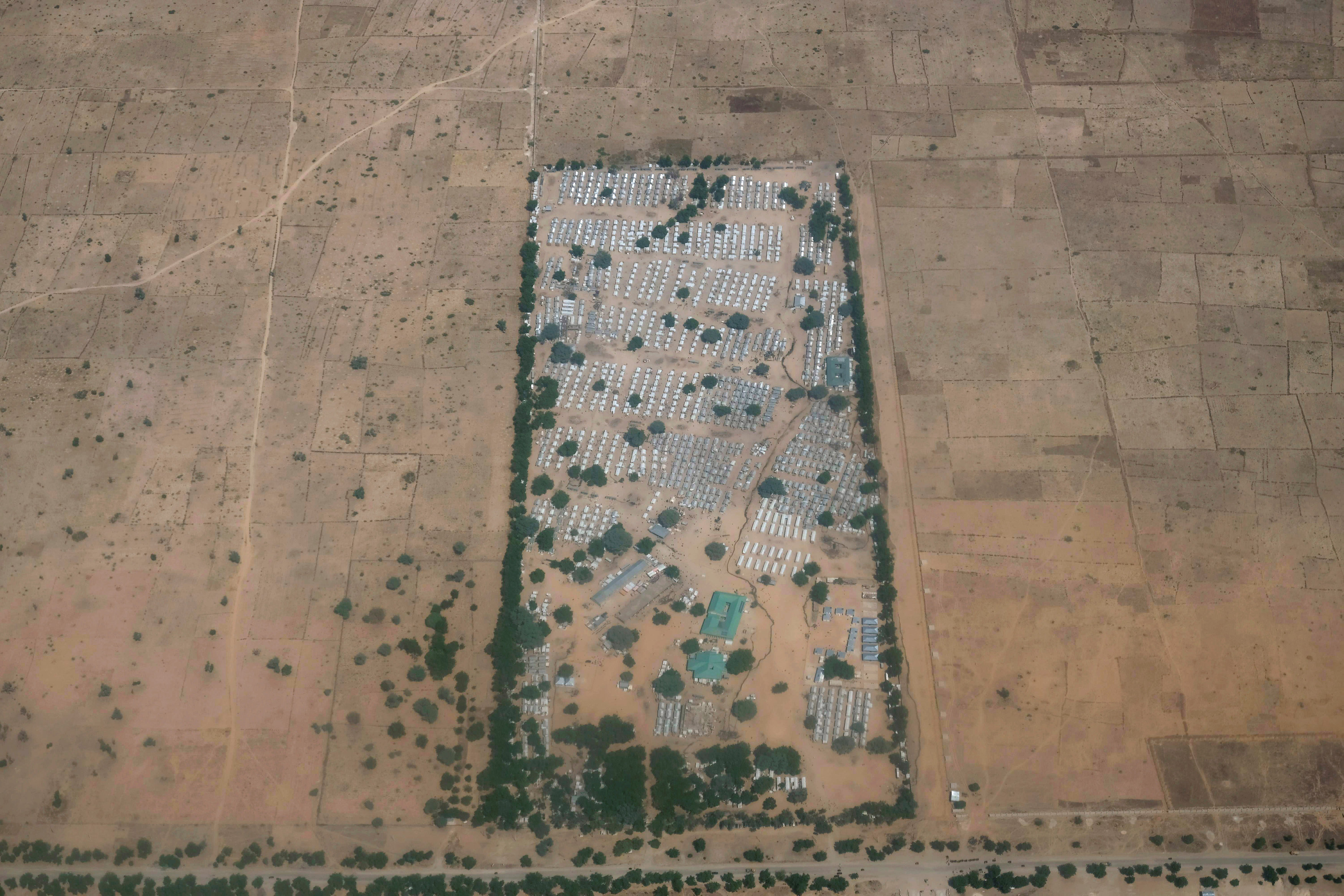
By Paul Carsten and Ola Lanre
BAMA, Nigeria (Reuters) – Nigeria’s government has a plan for the northeast, torn apart by eight years of conflict with Boko Haram: displaced people will be housed in fortified garrison towns, ringed by farms, with the rest of the countryside effectively left to fend for itself.
The vision for the state of Borno, ground zero for the war with the Islamist insurgency, is a stark admission of the reality in the northeast.
For two years, the military and government have said Boko Haram is all but defeated, and the remnants are being mopped up.
But the military is largely unable to control territory beyond the cities and towns it has wrested back from Boko Haram. That means many of the nearly 2 million displaced people across the northeast cannot return to their homes in rural areas.
Kashim Shettima, the governor of Borno state, said it was not possible for people to live in small villages.
“There’s beauty in numbers, there’s security in numbers. So our target is to congregate all the people in five major urban settlements and provide them with means of livelihood, education, health care and of course security,” he told Reuters. “It’s a long term solution, certainly.”
The plan for the eastern part of the state, centered on the town of Bama, is intended as a pilot scheme to be rolled out in other parts of Borno if it is successful.
Vigilantes, currently members of a group known as the Civilian Joint Task Force, will become agricultural rangers, the governor said.
Aided by Nigerian security forces, they will aim to secure and patrol a five-km (three-mile) radius around each garrison town where people can farm.

An aerial view of the Federal Training Centre camp on the road between Maiduguri and the town of Bama in northeast Nigeria, November 23, 2017. Picture taken November 23, 2017. REUTERS/Paul Carsten
PROTECTION
“It’s logical. Bama is the second biggest city in Borno,” said Peter Lundberg, the United Nations Deputy Humanitarian Coordinator for Nigeria, who heads the organization’s response in the northeast.
“People are very eager to go back if the conditions are right and if the conditions are safe, if the conditions are dignified, and of course it has to be voluntary,” he told Reuters.
Sentiment amongst the displaced is mixed.
Abubakar Goni, who lived outside Bama before fleeing to the Borno state capital Maiduguri, said he wants to return home, but if the town is safer he will agree to go there.
“I will support it as long as I will have a place to farm. I am also happy to hear the government will give us protection on the farm because I learnt Boko Haram men are still around.”
Others, like Tijja Modu Alhaji, are wary of potential disputes between residents of the towns where people will be sent and the returnees.
“I don’t want to stay in Bama because I will still be a stranger there, just as I am in Maiduguri now,” he said. “I want to go home, not to somebody else’s land.”
The governor’s plan is still in its early stages. It involves bringing back thousands of people who fled the town of Bama and the surrounding area and sought refuge in camps in Maiduguri and elsewhere.
They will eventually be housed in towns such as Bama, which was largely abandoned by its inhabitants when Boko Haram took it three years ago, but has since been recaptured by the military.
Many of Bama’s buildings are still shells, windows smashed, doors ripped out and roofs gone. Telephone and electricity wires remain torn down, more than two years after the military evicted Boko Haram.
It is not clear how the returnees will be housed. There are already 15,000 people in a crowded camp for displaced local residents set up by the military after it retook the town.
The United Nations had planned to move them gradually to new shelters accommodating 30,000 people that have been erected in the town, but the military said it could not oversee two camps there at the same time, UN and military officials told Reuters.
NEW HOMES
The government has announced plans to build 3,000 homes in the Bama area. But there are concerns about how people sent to the town will manage, since many did not originally live there.
“It’s one thing to move people to Bama,” said Lundberg. “Unless the engine of the economy can restart, the risk is that people are moving back to places where they will become very dependent (on aid).”
Aid workers said the demarcation between garrison towns and a lawless countryside means people have a choice: live in virtual quarantine, or return to their homes in the countryside, where Boko Haram roam, and be treated by security forces as potential insurgency sympathizers.
“You’re imprisoned, but you’re safe,” said one senior relief worker, speaking on condition of anonymity. “If you prefer your own life you can do it on the outside.”
Boko Haram’s recent attacks, including a suicide bombing that killed at least 50 in a mosque in Adamawa state last week, are the “last kicks of a dying horse,” Nigeria’s Information Minister Lai Mohammed said last Sunday.
But military and diplomatic officials, speaking on condition of anonymity, said overstretched troops are unable to push Boko Haram out of non-urban areas. Much of Borno is not under the authorities’ control and attacks are rife.
“Borno is not getting better at all. It may have even gotten worse,” a diplomat said of the security situation outside urban areas. “There is no recovery and stabilization.”
(Additional reporting by Ahmed Kingimi in Maiduguri; editing by Giles Elgood)






